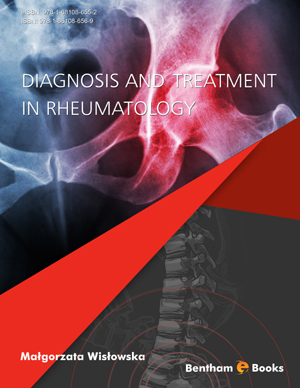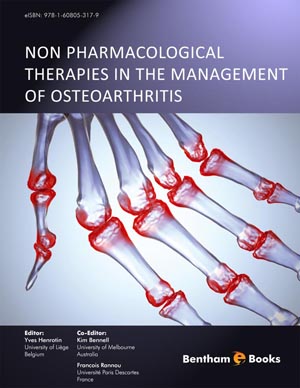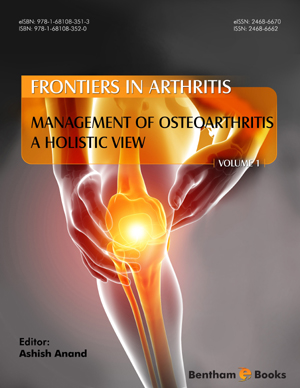Abstract
Rheumatoid arthritis (RA) is a chronic inflammatory disease that mostly
affects the joints. Inflammation is an immune response of the human body, but an
overabundance of such responses is thought to be a key element in the evolution of
many other issues, including RA, cancer, and neurological illnesses. The growth and
inhibition of RA necessitate the identification of a precise mechanism and target in the
body. Interleukins (IL), tumour necrosis factors (TNF-), interferons (INF), and
arachidonic acid derivatives are the most important cytokines and inflammatory
mediators in rheumatoid arthritis. IL-6 inhibitors, JAK inhibitors, anti-TNF, and
currently available disease-modifying anti-rheumatic medications (DMARDs) have all
been demonstrated to be effective in the treatment of RA. We have also summarised
the inflammatory mediators such as arachidonic acid metabolites and their role in
inflammation. This chapter also observed cytokines and other transcription factors that
play a role in the disease's onset and progression. The current study includes a wide
range of issues, including RA molecular pharmacology, such as cytokines
pharmacology, transcription factors, and other active biomolecules. However, the study
shows that a number of biomolecules and mediators play a key role in the pathogenesis
of RA, and a thorough understanding of the underlying pathways can aid in the creation
of new targeted pharmacological therapies that are both safer and more effective in RA.
Keywords: Cytokines, Inflammation, Inflammatory mediators, Interferons, Interleukins, Prostaglandins, Rheumatoid Arthritis.








